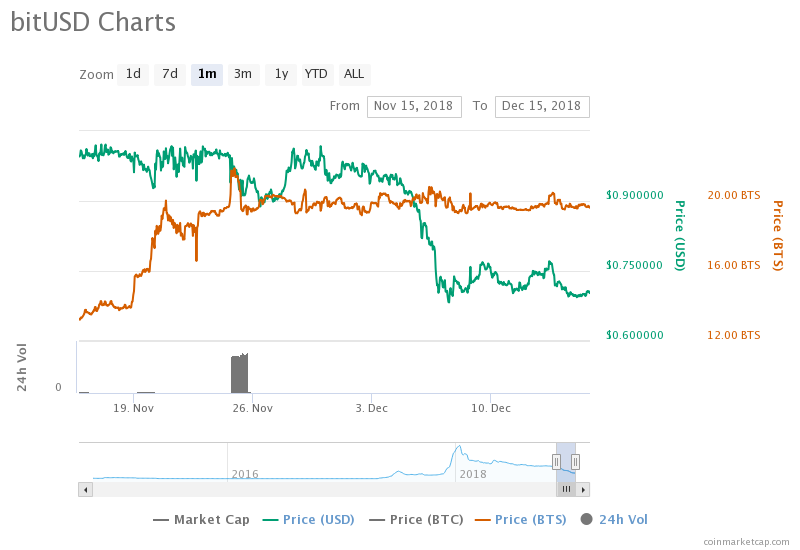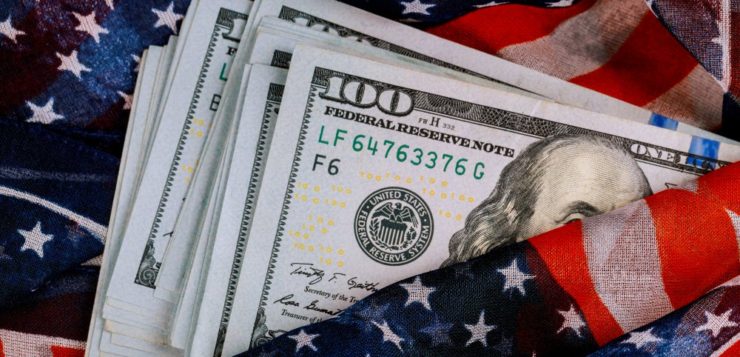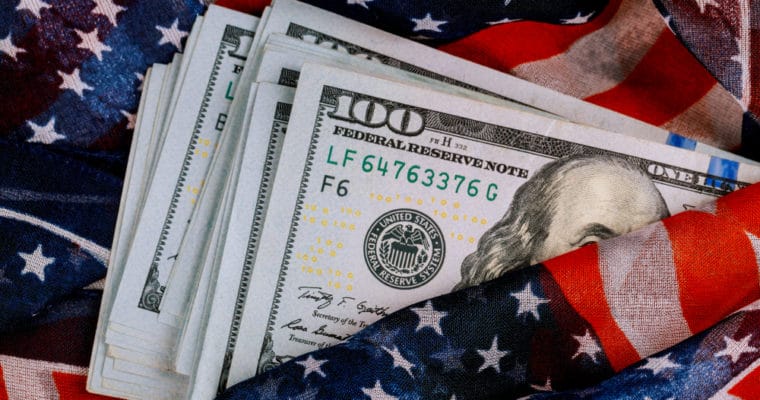
According to recent market data, bitUSD, an elder stablecoin with a similar design and functionality to the Dai, is currently worth 30% less than the dollar it is intended to be worth. The way the design of BitShares, the platform on which BitUSD is issued, works is that if the network lacks liquidity for the shares issued, the tokens automatically go into “global settlement” mode. That means they can no longer be issued. All that can be done at this point with BitUSD tokens is a redemption against BTS – currently at a rate of about 70 cents on the dollar.
Back on December 4th, a BitShares user calling himself “bitsharesbagholder” posted to the official BitShares forum with concerns that BitUSD was effectively “dead.” The purpose of trading the tokens is to denominate in US Dollars, after all, and if one is unable to effectively do that due to a lack of collateral in the network against which the tokens are issued.
Interesting week for stablecoins.
Recently BitShares bitUSD went into “global settlement,” meaning that users can no longer borrow bitUSD from the chain, but they can convert it into collateral (BTS) at the global settlement price, currently about $0.70. pic.twitter.com/YJamqqKQi6
— Myles Snider (@myles_snider) December 14, 2018
The global downturn in cryptocurrency prices has likely played a big role in the devaluation of the BitUSD token. In order to effectively redeem tokens for a dollar’s worth of cryptos, the cryptos held in the BitShares contracts must hold a value that enables them to do so.
Holders of the BitUSD tokens have little recourse, and if they actually want to redeem at $1, they’ll have to wait until the token recovers its value on the market place. As analyst Lance Kasper explains:
Unlike many attempts to create a digital asset that tracks the dollar, market pegged asset are not an “I owe you” issued by any entity. For this reason, it does not rely on a specific counterparty to honor its value. Although manipulation risk occurs in any market, it is minimized by the open source and auditable nature of the BitShares system and carefully considered market rules. BitAssets stored on an exchange become IOUs and are subject to counter party risk just like storing bitcoin or bitshares on an exchange. This risk is not a property of the BitAssets themselves. We recomend that users never deposit BitAssets on an exchange and instead only use gateways that issue their IOUs onto the BitShares network. This way you can trade your BitUSD against gateway IOUs without exposing your BitUSD to counter party risk while in the order book.
The last time the BitUSD token had a market-standard parity with the US Dollar was November 28th.

BitUSD’s overall market capitalization is a fraction of other stablecoins, thus the number of affected parties is far smaller than if a similar thing were to happen with a token like USDC or Tether or Pax. These stablecoins have a different design altogether, though, which would necessitate some degree of fraud for that much value to go missing from the system of redemption and pegging.
Featured image from Shutterstock.
Get Exclusive Crypto Analysis by Professional Traders and Investors on Hacked.com. Sign up now and get the first month for free. Click here.






